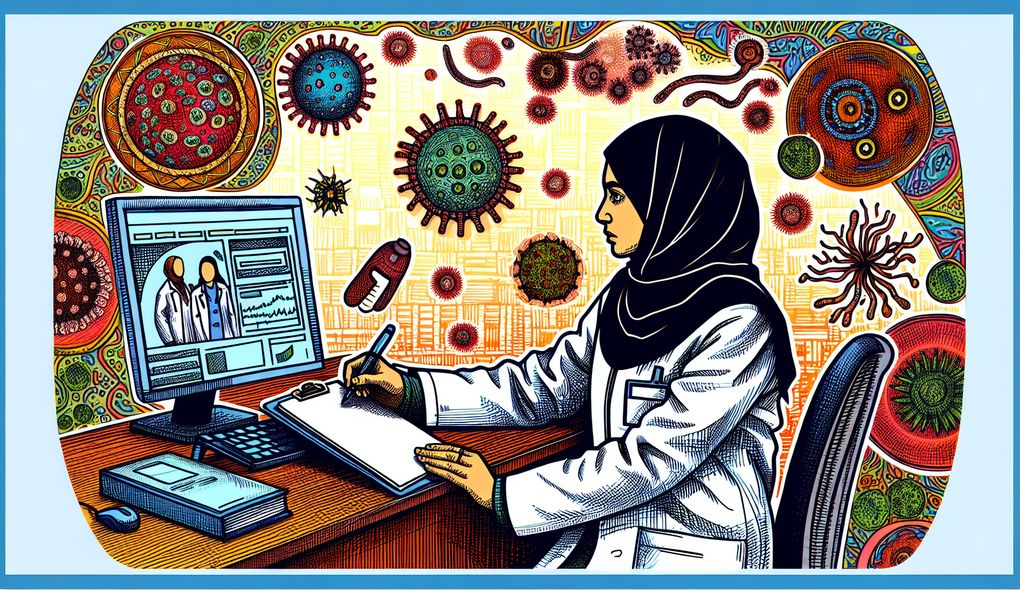Tell us about a time when you had to resolve conflicts or disagreements within a team during an epidemiological study.
INTERMEDIATE LEVEL

Sample answer to the question:
During a recent epidemiological study, I encountered a conflict regarding the interpretation of data within my team. The team members had different perspectives on the implications of certain findings, which led to disagreements and tension. To resolve the conflict, I facilitated a team meeting where everyone could openly express their viewpoints. I encouraged active listening and respectful communication. We discussed each team member's rationale and supporting evidence for their interpretation. Through this discussion, we were able to gain a better understanding of each other's perspectives. I then proposed a consensus-building approach where we identified areas of agreement and compromised on the areas of disagreement. By incorporating multiple perspectives, we were able to reach a consensus that satisfied everyone. This experience taught me the importance of effective communication, active listening, and collaboration in resolving conflicts within a team.
Here is a more solid answer:
During a recent epidemiological study, our team encountered a conflict regarding the interpretation of data related to a disease outbreak. Some team members believed that the outbreak was caused by a specific source, while others had a different hypothesis. The disagreement created tension and hindered our progress. To resolve the conflict, I took the initiative to organize a meeting where we could address the issue. I facilitated the discussion by providing a structured framework for each team member to present their arguments and evidence. I encouraged active listening and respectful communication throughout the meeting. As a critical thinker, I asked probing questions to challenge assumptions and clarify points. By actively engaging in the discussion, I was able to identify areas of agreement and areas where compromise was needed. We collectively analyzed the data, examined alternative explanations, and considered the implications of each hypothesis. After a thorough deliberation, we reached a consensus on the most plausible explanation for the outbreak. This experience taught me the importance of fostering a collaborative and inclusive environment where conflicts can be resolved through open communication, critical thinking, and a willingness to consider different perspectives.
Why is this a more solid answer?
The solid answer expands on the basic answer by providing specific details about the conflict, such as the disagreement about the cause of a disease outbreak. The candidate demonstrates their critical thinking skills by facilitating a structured discussion, asking probing questions, and analyzing alternative explanations. The answer also emphasizes the importance of collaboration, inclusive decision-making, and considering different perspectives. However, it could be improved by mentioning the candidate's role in fostering a collaborative environment from the beginning and discussing the outcome or impact of the conflict resolution.
An example of a exceptional answer:
During an epidemiological study, our team faced a significant conflict that arose during the analysis phase. We were examining the impact of a vaccination campaign on disease prevalence, and two team members had divergent interpretations of the findings. One member argued that the campaign was highly effective in reducing disease rates, while the other believed that the results were inconclusive and attributed the decline to other factors. The conflict was affecting team morale and impeding the progress of our study. As the team lead, I recognized the need for immediate resolution. I organized a team meeting where I set clear guidelines for respectful and open communication. We began by presenting our respective viewpoints, supported by data and scientific literature. To foster critical thinking and problem-solving, I encouraged each team member to challenge and question the assumptions underlying their positions. We engaged in a productive debate, examining the strengths and weaknesses of each argument. It became evident that both perspectives held valid insights, and that a compromise was needed. We devised a plan to conduct additional analyses, incorporating different variables and adjusting for potential confounders. This collaborative approach allowed us to reach a consensus on the most accurate interpretation of the data. As a result, our study findings were more comprehensive and provided valuable insights for public health interventions. This experience highlighted the importance of effective leadership, open-mindedness, and evidence-based decision-making in resolving conflicts and achieving successful outcomes within a team.
Why is this an exceptional answer?
The exceptional answer goes into even more detail about the conflict, providing specific information about the differing interpretations of the findings and the impact on team morale and study progress. The candidate showcases exceptional leadership skills by recognizing the conflict and taking immediate action as the team lead. The answer demonstrates advanced critical thinking and problem-solving abilities through the structured approach to the team meeting and the plan for additional analyses. The candidate emphasizes the outcome of the conflict resolution, highlighting the importance of achieving comprehensive study findings and providing valuable insights. Overall, the exceptional answer demonstrates a high level of expertise in resolving conflicts within a team during an epidemiological study.
How to prepare for this question:
- Reflect on past experiences where you have encountered conflicts within a team during epidemiological studies. Think about the specific details of the conflicts, the roles and dynamics of the team members involved, and the outcomes of the conflicts.
- Familiarize yourself with conflict resolution strategies and techniques, such as active listening, open communication, and compromise. Understand the importance of maintaining a respectful and inclusive environment during conflict resolution.
- Practice presenting your views and arguments in a clear and logical manner. Develop critical thinking skills to challenge assumptions and explore alternative perspectives during debates or discussions.
- Consider the role of leadership in conflict resolution and how you can effectively lead a team through the process. Reflect on your leadership style, communication skills, and ability to foster collaboration.
What are interviewers evaluating with this question?
- Teamwork and collaboration
- Critical thinking and problem-solving
- Communication skills

